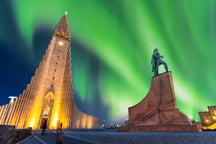Thinking about making the move to Iceland from the US? Read this guide to find out what’s legally required and find tips on what to expect.
With recent events making many rethink their future, a lot of people are considering moving abroad. If Iceland is on your radar, you're in the right place!
People often ask us for tips on how to move to Iceland, so we figured it was time to share some helpful advice specifically for current US residents. Whether you're looking to escape political uncertainty or simply craving a new adventure, this guide will walk you through the steps for a painless move.
Before you take the plunge, though, it’s important to know some basics about Iceland to decide if it’s the right place for you. Read through this guide and consider booking top Icelandic tour packages that can help you familiarize yourself with the country’s offerings.
Key Takeaways
-
Work, student, or marriage visas are the main ways to move to Iceland from the US.
-
There are opportunities in specialized sectors like healthcare, technology, and engineering, though competition can be high.
-
Expect higher living costs, particularly in Reykjavik, but salaries generally reflect these costs.
-
Reykjavik is the most popular choice for expats, but Akureyri offers a smaller, quieter environment with beautiful landscapes.
How To Move to Iceland From the US
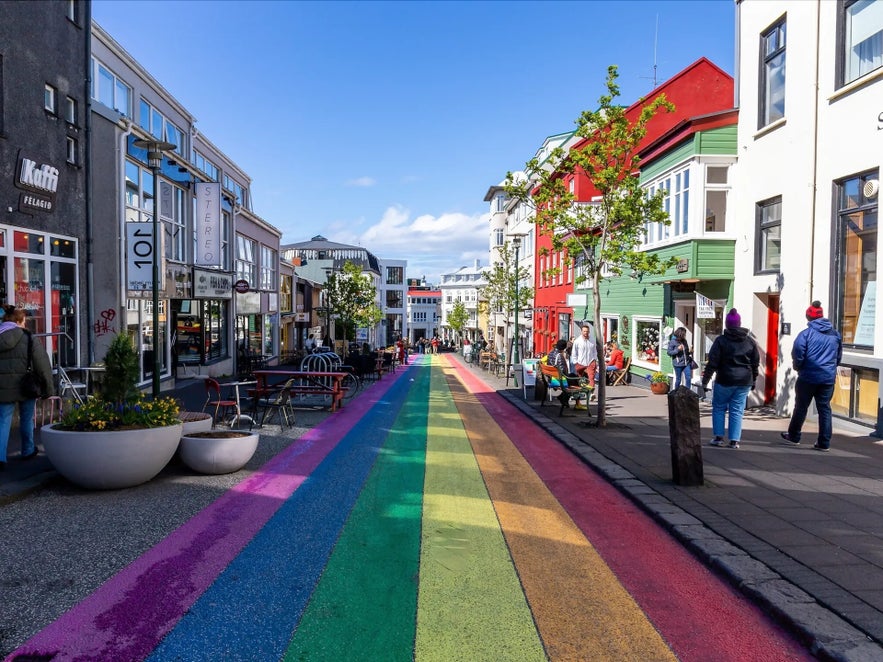 Moving to Iceland from the US is an exciting adventure, but it can be a bit tricky. For those of you planning to immigrate to Iceland, there are a few key steps and important considerations. Let’s break down the process.
Moving to Iceland from the US is an exciting adventure, but it can be a bit tricky. For those of you planning to immigrate to Iceland, there are a few key steps and important considerations. Let’s break down the process.
Visa and Residency Requirements
As a US citizen, you'll need a residence permit if you plan to stay in Iceland for over 90 days.
A work visa is necessary if you have secured employment in Iceland. Your employer must demonstrate that your skill set is not readily available in the Icelandic workforce, meaning they need to prove that no Icelandic candidates could do the job.
This may require your employer to conduct a labor market test and provide proof of your employment contract.
-
Eligibility: This is typically for those with specialized skills in sectors like healthcare, engineering, IT, teaching, and more.
-
Process: Apply for a work visa at the Icelandic Directorate of Immigration or your nearest Icelandic embassy.
-
Documents required: A signed work contract, proof of qualifications, and evidence that no local candidate could fill the role.
Additionally, Iceland has a robust education system with affordable universities for international students. You'll need a student visa if you're moving to Iceland to study.
-
Eligibility: Accepted at an Icelandic higher education institution (e.g., University of Iceland or Reykjavik University).
-
Process: Apply through the Directorate of Immigration and provide proof of enrollment, financial support, and health insurance.
-
Documents required: Proof of university admission, sufficient funds to cover your living expenses, and health insurance.
Another way to qualify for residency is through marriage or civil partnership with an Icelandic citizen.
-
Eligibility: You must prove that your relationship is genuine and that you have lived together for a specified period (usually two years or more).
-
Process: Apply through the Directorate of Immigration after you have been married or in a registered partnership.
-
Documents required: Marriage certificate, proof of cohabitation, proof of financial support.
- Learn more about Studying in Iceland
- Read Things I Wish I Had Known Before Moving to Iceland
Required Documents for Immigration
Before you begin the process of moving to Iceland, make sure you gather the following documents, which most residence applications require:
-
Passport: Valid for at least three months beyond your planned stay.
-
Proof of employment or enrollment: Employment contract for work visa applicants or university enrollment for student visa applicants.
-
Financial stability: Bank statements, proof of income, or sponsorship letters to show you can support yourself.
-
Health insurance: Coverage is valid for the entire length of your stay and is often mandatory before you can apply for residency.
-
Kennitala: This is a personal ID number required for all residents in Iceland. You will need to apply for it at the National Registry once you arrive.
Finding Housing in Iceland
Once you’ve secured your visa, it’s time to find a place to live. Housing in Reykjavik, particularly, can be pricey, and competition is high.
Websites like Mbl.is are popular for searching for rental properties. If you want to stay for a short time, consider booking temporary housing through services like Airbnb or local Facebook groups. You can also stay in Iceland hotels and accommodations while searching for a place.
When it comes to rent costs, expect to pay about 700 USD to 1,200 USD for a one-bedroom apartment in Reykjavik.
- See more about How to Purchase Property in Iceland
- Read about the Best Cottages for Rent in Iceland
Finding Work in Iceland
Finding a job in Iceland’s job market is competitive, but it offers opportunities for those with skills in high-demand fields. While knowledge of Icelandic is helpful, many Icelanders speak English fluently, making it possible to find work without speaking the language.
Popular job sectors include:
-
Healthcare: There’s demand for doctors, nurses, and healthcare professionals, but you’ll need to have your qualifications recognized in Iceland.
-
Technology: Iceland is a growing hub for IT professionals, software developers, and data scientists.
-
Education: Teachers, particularly those specializing in STEM subjects or English, are highly sought after.
-
Engineering: Opportunities exist in civil engineering, construction, and renewable energy sectors.
Websites like Alfred.is, and Indeed Iceland are good places to start. Icelandic society also values personal connections, so networking is an effective way to secure a role.
Cost of Living, Budgeting, and Taxes in Iceland
Iceland is known for its high cost of living, especially in Reykjavik. However, wages generally reflect these costs.
-
Housing and utilities: Renting is expensive, and groceries are pricey, but there are budget-friendly Icelandic grocery stores like Kronan that manage costs.
-
Taxes: Iceland has a progressive tax system, with income tax rates ranging from 22.5% to 31.8%. The tax rate depends on your income level, so you'll want to factor this into your budget.
-
Living expenses: Local options like food trucks and cafes offer affordable alternatives. Utilities like electricity, water, and internet are generally included in your rent.
- Get discounts on food, hotels, and more with the Guide to Iceland VIP Club
- Learn more in our Guide to Iceland’s Population
What To Expect After Moving to Iceland
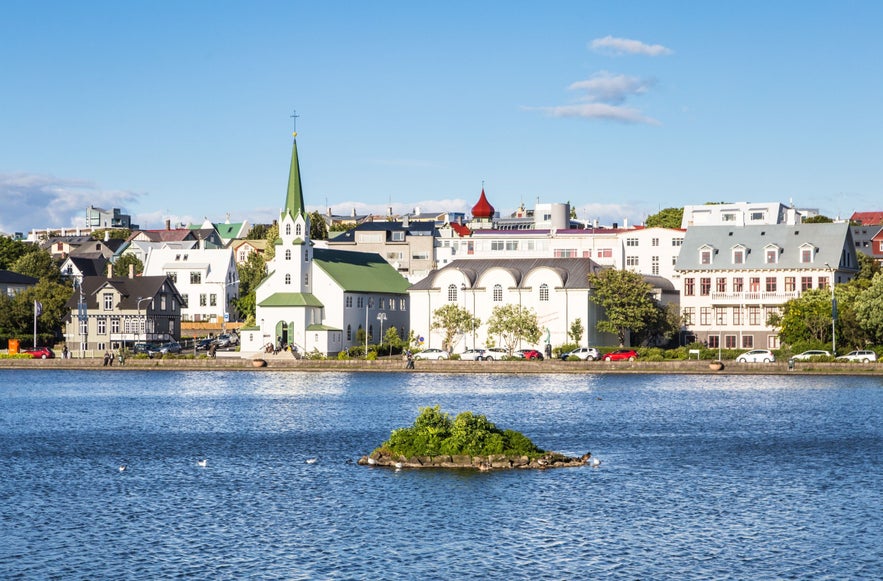 Once you’ve navigated the moving process and arrived in Iceland, here’s what you can expect:
Once you’ve navigated the moving process and arrived in Iceland, here’s what you can expect:
Icelandic Language
While the Icelandic language can be challenging, learning it will help you better immerse yourself. Icelandic shares many letters with English but also includes unique characters and sounds.
Though you don't need to be fluent, learning basic Icelandic can enhance your experience. Simple phrases such as greetings, asking for directions, and ordering food will help you navigate daily interactions and show respect for the culture.
For newcomers, free online resources, language schools, and even language meetups are available in Reykjavik and other towns to help you get started. You might also find that many Icelanders are friendly and patient with non-native speakers.
- Learn more about the Easy Way to Learn the Icelandic Language
Gender Equality in Iceland
 Iceland has the highest gender equality in the world, as measured by the World Economic Forum’s Global Gender Gap Index.
Iceland has the highest gender equality in the world, as measured by the World Economic Forum’s Global Gender Gap Index.
The first female head of state (president) was Vigdís Finnbogadóttir, who served as president between 1980 and 1996. Iceland also had the first openly declared lesbian as a prime minister, Jóhanna Sigurðardóttir, who served from 2009 to 2013.
Currently, the political landscape reflects a strong commitment to gender equality, with 48% of the current political party members being female.
Icelandic society is known for supporting equal opportunities for women in politics, with a diverse range of voters equally backing female candidates. Women’s voices are respected in leadership, and they continue to make significant contributions in both politics and business.
The country often celebrates Icelandic women for their achievements in various fields, including politics, business, and the arts.
- Read about What Icelandic Women Are Like
LGBTQ Rights in Iceland
If you're a member of the LGBTQ community, you'll find Iceland to be an incredibly welcoming and inclusive country.
Iceland is known for its strong support of LGBTQ rights, and every year, Reykjavik Pride sees about one-third of the country’s population celebrating in the streets of Reykjavik.
The most popular pop star in Iceland is Paul Oscar, the glitter King of Icelandic pop music who always leads Reykjavik Pride. In 2016, he did so on a giant glitter unicorn with a rainbow bum.
- Check out The Ultimate Guide to Gay Iceland
- Take a tour with the Three-Hour Private LGBTQ Reykjavik City Walk Tour
The Icelandic President and Politics

Photo from Wikimedia, Creative Commons, by Arctic Circle. President Halla Tómasdóttir speaking at the Arctic Circle conference in 2024.
The current Icelandic president is Halla Tómasdóttir, who assumed office on August 1, 2024. She is a well-respected leader with a background in economics and business.
Halla is Iceland’s second female president, the first being Vigdís Finnbogadóttir, and her presidency marks a shift in the country’s political landscape. During her presidency, she has emphasized transparency and inclusivity in politics.
Iceland’s political scene is dominated by several key parties, including the Independence Party, the Social Democrats, and the Left-Green Movement. These parties play a critical role in shaping policies across various sectors, such as the economy, environment, and social issues.
Icelandic Nature and Culture
The Icelandic nature is stunning, the weather is cold (but not as cold as you think), and the culture is rich.
Iceland is renowned for its stunning natural landscapes, including dramatic volcanoes, glaciers, waterfalls, and geothermal hot springs. While the weather can be colder than many expect, it’s still manageable and part of the country's unique charm.
Icelandic culture is equally captivating, with deep-rooted traditions in literature, music, and the arts. Whether you're exploring the breathtaking landscapes or experiencing the warmth of its rich cultural heritage, Iceland offers something special for every visitor.
-
Explore with top meet-on-location tours:
-
Jokulsarlon Boat Tour: Enjoy a boat trip between stunning icebergs in the breathtaking Jokulsarlon Glacier Lagoon, one of Iceland’s most iconic natural wonders.
-
Glacier Hiking at Skaftafell: Trek across the icy expanse of a breathtaking glacier in Skaftafell, guided by experts in a stunning national park.
-
Katla Ice Cave Tour: Venture into the beautiful blue and black ice caves of Katla Volcano, a rare opportunity to explore Iceland’s glacial underworld.
-
Whale Watching in Husavik: Experience the thrill of spotting whales in Husavik, Iceland’s whale-watching capital, known for its rich marine life.
-
Snorkeling in Silfra: Float between continents in the crystal-clear waters of Silfra, a unique snorkeling site in the heart of Thingvellir National Park.
-
Snowmobiling on Langjokull: Race across the vast, icy landscapes of Langjokull Glacier on a thrilling snowmobile adventure.
-
The Blue Lagoon Comfort: Relax in the soothing, mineral-rich waters of the world-famous Blue Lagoon, surrounded by Iceland’s stunning lava fields.
-
Frequently Asked Questions About Moving to Iceland From the US
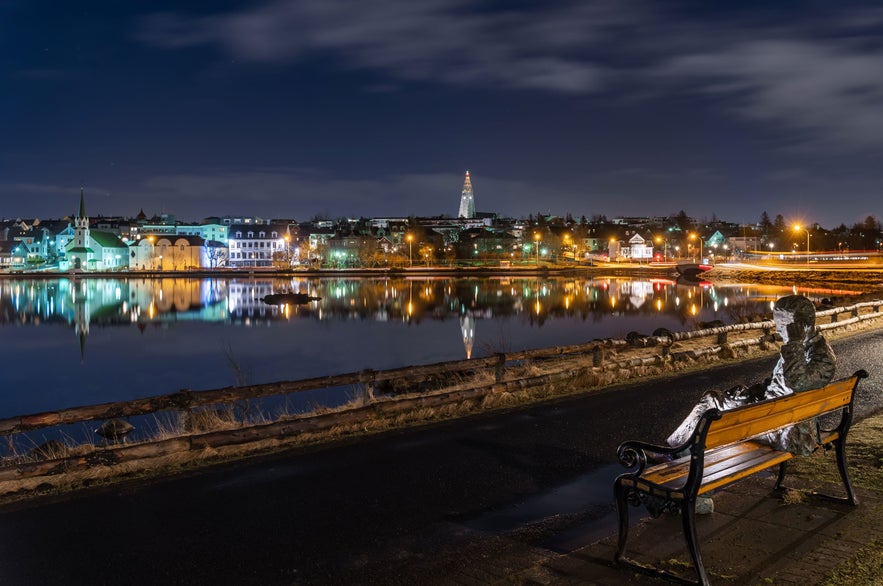 Planning to move to Iceland from the US? Below are some commonly asked questions to help you navigate the process and make the most of your relocation experience.
Planning to move to Iceland from the US? Below are some commonly asked questions to help you navigate the process and make the most of your relocation experience.
What is the cost of living in Iceland compared to the US?
The cost of living in Iceland is generally higher than in the US, particularly for housing, food, and transportation, especially in Reykjavik. Estimates peg Iceland as anywhere from 12% to 29% more expensive than the US.
However, salaries in Iceland tend to reflect these higher costs, and you can find affordable options for groceries and local services.
Is it hard for an American to get a job in Iceland?
While finding a job in Iceland can be competitive, it's not impossible if you have specialized skills in high-demand industries like healthcare, technology, or engineering.
Having Icelandic language skills is often an advantage, but many employers in Reykjavik also require English proficiency.
How much money do you need to live comfortably in Iceland?
To live comfortably in Iceland, you should budget around 2,500 USD to 3,500 USD per month. This includes rent, utilities, food, transportation, and other living expenses, but the amount may vary depending on your lifestyle and location within the country.
What are the healthcare options for Americans moving to Iceland?
Iceland has a public healthcare system, and as a resident, you can access it through the national health insurance scheme. However, private healthcare options are also available for those seeking additional coverage or quicker services.
What are the best Icelandic cities for Americans to live in?
Reykjavik is the most popular and practical city for expats, offering a vibrant job market, cultural events, and a wide range of services. Akureyri is also a great option for those looking for a smaller, more relaxed atmosphere with beautiful surroundings.
Is Iceland a good place for an American to live?
Iceland is a great place for Americans who appreciate stunning landscapes, a high quality of life, and a focus on gender equality and sustainability.
While the cost of living is high, salaries reflect it, and the strong healthcare system and work-life balance make it appealing for many.
Ready To Move to Iceland?
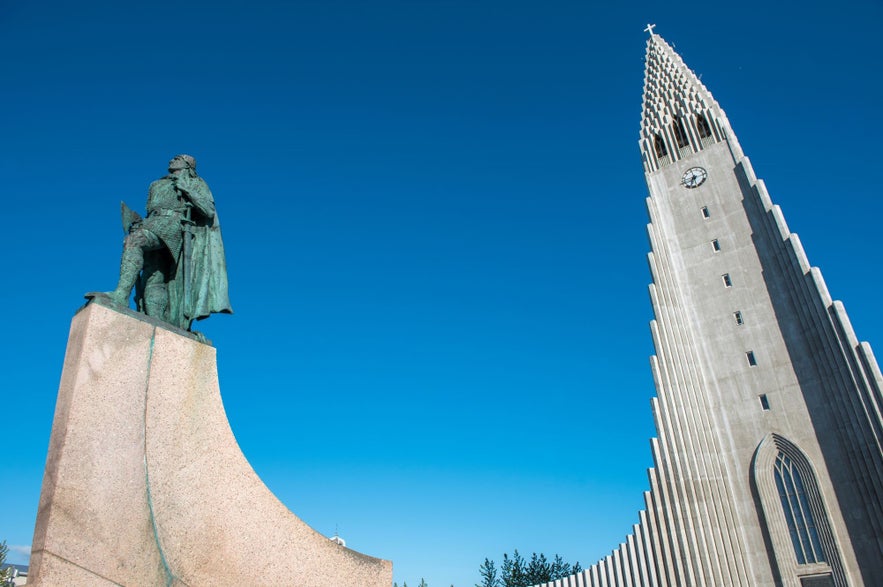 Moving to Iceland can be an exciting and fulfilling adventure, but it's important to understand the steps involved before moving.
Moving to Iceland can be an exciting and fulfilling adventure, but it's important to understand the steps involved before moving.
While it’s easier for those in the EEA or EFTA, Americans will need to navigate visa and work permit processes. Whether you're planning to marry, study, or secure a job, do your research and prepare for the application process ahead.
For more information on the requirements and how to begin your journey, check out the Icelandic Directorate of Immigration.
Planning a scouting trip to discover exactly where on the island you want to call home? Book a rental car and plan to drive around the island, staying a few days or weeks in each location to see if it fits your preferences.
Good luck with your move—who knows, Iceland might just be the fresh start you're looking for!
Want to know more about what it’s like to live in Iceland? Looking for insider tips on making the move? Have advice for people making the move? Leave a comment below!
















